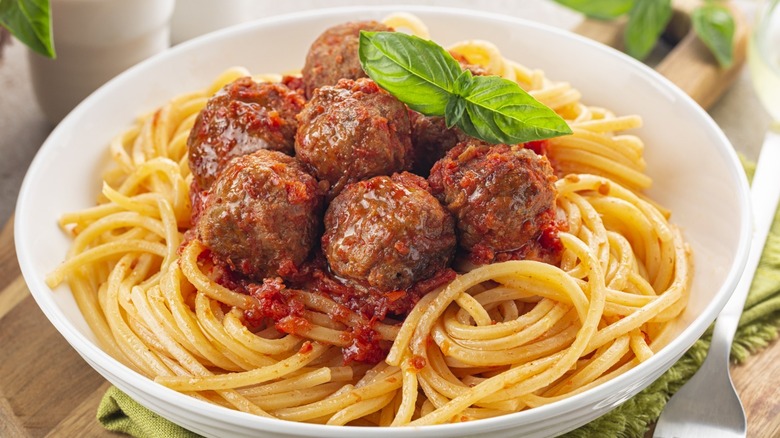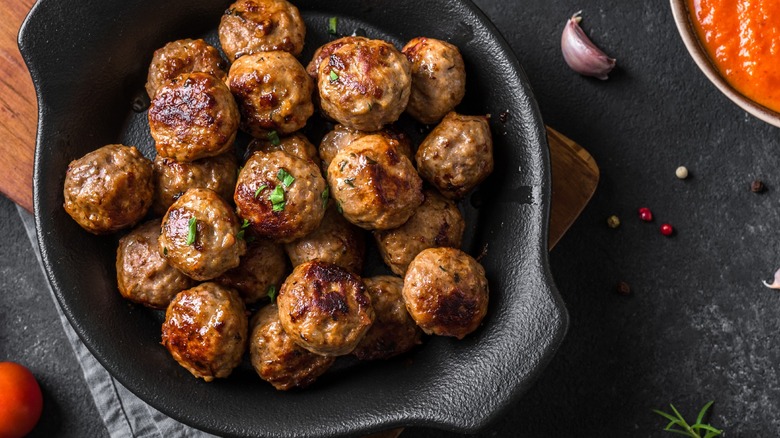Why Adding Dried Fruit To Your Meatballs Can Create A Better Texture
Life is too short to eat boring meatballs. If you're tired of the same old textures and flavors time after time, consider this your sign to try something new. Change up your meatball recipe using one unusual ingredient — dried fruit.
Your typical meatball formula involves ground meat, breadcrumbs, salt, and egg. From there, seasoning is up to the chef, as is the method of cooking the meatballs. Some cooks swear by baking them, others fry them, and some boil them. Because this dish is a bit of a choose-your-own-adventure, it's easy to fall into the trap of making dry, bland meatballs. If your meat is too lean, for example, you can forget about achieving a juicy meatball, or if you cook the meatballs too long, they're doomed to dryness. To change up your meatballs, take a cue from Persian cuisine by adding a sweet and chewy bite to your recipe.
Fruit and nuts will elevate your meatball game
Swedish meatballs get a lot of hype for being delicious and juicy, but Persian meatballs deserve some love, too. Not only are they larger than your typical meatball, but they also have a completely different flavor profile and mouthfeel.
Persian meatballs, called Koofteh, traditionally contain a dried cherry, apricot, or date in the center. The sweetness from the fruit complements the meat you choose for your base because it cuts through some of the rich flavors. The texture is also more interesting than a typical meatball because of some additional ingredients like split peas and rice. Koofteh is served as an entree with rice and tomato sauce.
Persian cuisine isn't the only culture that combines fruit and ground meat. Dried fruit appears in Sicilian meatballs as well. Traditional Sicilian meatballs contain currants and pine nuts for a flavorful punch and are sometimes eaten with spaghetti.

